According to Dr. Mai Anh Tuan (Hanoi University of Culture), the film “Tunnels: Sun in the Dark” has shown its superiority over many other works of the same war genre in Vietnam before.
Through the depiction of the brutality of the war through American weapons and resources; the portrayal of Vietnamese soldiers as ordinary people, without idolization, and a more open storytelling style… director Bui Thac Chuyen has fulfilled the audience’s expectations for a worthy war film.
The Difference of the Tunnels
- Sir, as a follower of Vietnamese cinema, how do you evaluate the similarities and differences (in terms of story, storytelling, message...) of "Tunnel" with previous films of the same genre, made in Vietnam?
Dr. Mai Anh Tuan: The movie "Tunnels" has probably relieved some of the audience's resentment and prejudice when watching Vietnamese war movies.
In the past, for many reasons, especially technical reasons, poor filmmaking technology, we had very few truly “epic” war films, meaning those that could create a sense of satisfaction with fierce and intense battle scenes. Audiences found it difficult to accept war films in which the battle scenes, even in major battles/campaigns that have been honored by history, only contained a few scenes depicting bombs falling and bullets exploding.
Dr. Mai Anh Tuan. (Photo: People's Police Newspaper)
With "Tunnels," the audience sees with their own eyes the raids, the enemy's weapons, and the realistic and continuous explosions. The film crew has worked very hard to enhance the images, colors, and sounds of the gunfights, bombings, and grenade launchings.
So, the problem is not that we cannot make war films, but we need dedicated directors who have a deep understanding of this genre, and we also need large investments in technology and finance for filmmaking.
- Compared to works made in the last 10-15 years on the subject of war in Vietnam by Vietnamese people, how do you see "Tunnels" being different?
Dr. Mai Anh Tuan: If we put "Tunnels" next to recent Vietnamese war films such as "Living with History" (2014), "The Returnee" (2015), "The Scent of Burning Grass" (2011), "Red Dawn" (2022), "Peach, Pho and Piano" (2024), we can see that "Tunnels" is superior in filmmaking techniques.
On the other hand, "Tunnels" also shows a rather unique way of storytelling and portraying the image of soldiers. The soldiers, in this case the tunnel guerilla team, are not overly emphasized in terms of personality and heroic qualities.
They lived and fought in difficult and dangerous situations, but they could still sing, joke, and have moments of love and affection. Even the sacrifices of the tunnel soldiers were painful, not the kind of magnificent sacrifices that are often described.
I think "Tunnels" sees soldiers in a very difficult wartime situation, on the brink of life and death, and therefore, they do not need to force themselves to prove themselves heroes. For them, Binh An Dong Tunnels is a battle for survival before talking about achievements or victories.
Thai Hoa as Bay Theo. (Photo from the movie)
Do not "deify" soldiers
- According to the audience's reaction after watching the film, one of the most controversial details is the "hot scenes" and the purpose of these segments in the film. While there is a group of audiences who responded and appreciated the director's intention, there is also another group who thinks these details are redundant, even offensive. How do you explain this reaction of the audience, sir?
Dr. Mai Anh Tuan: In the war films of the previous revolutionary cinema, there were no “hot scenes.” Recent Vietnamese war films also only had love scenes, but not to the extent of hot love like “Tunnels” . In my opinion, whether there are “hot scenes” or not is not as important as whether the scene is good and appropriate to the plot of the film.
In "The Tunnels," I think the scene where Ut Kho is "possessed" by a comrade is better and gives me more emotions. Ut Kho is innocent, and when she finds out she is pregnant, she is not sure who the father is. War puts people in a difficult position to distinguish right from wrong, only death, like Ut Kho's death, makes us feel deeply the victim, how clear the pain of that war is.
As for the “hot scene” between Tu Dap and Ba Huong, in my opinion, it may or may not exist, meaning it did not make me have too many emotions or thoughts. It was still an acceptable scene considering the development of the relationship between Tu Dap and Ba Huong, but showing affection under the rain of bombs and bullets, in the middle of a violently shaking basement, I think it was a bit too much!
This scene shows the vitality, the desire to live, and the attitude of “not caring” about bombs and bullets of the young guerrilla. But I like it more fleeting than the specificity in the film.
A common scene between Ba Huong and Tu Dap. (Photo from the movie)
- In fact, stories considered sensitive like this have appeared in movies with similar settings before, but they were not told directly. For example, in the movie "Dong Loc Intersection" by Luu Trong Ninh, there was also a detail about a young volunteer who got pregnant, was disciplined, and went to the base to herd cows.
It seems that "Tunnel" is a rare film that provides additional perspectives behind such stories. Is it true that "men-women stories" are a reality that many filmmakers and writers have avoided or actively chosen not to mention? What is your opinion?
Dr. Mai Anh Tuan: "Dong Loc Junction" (1997) is a film that depicts soldiers in the details and daily actions of ordinary people. Director Luu Trong Ninh did not intend to deify them.
The movie "Tunnels," as I mentioned above, continues to build the tunnel guerrilla soldier in a state of having to survive, having to fight hard. Death and loss happen every day. The movie does not consider "men and women's affairs" as taboo in war. On the contrary, the director considers it a normal thing for ordinary people, before they are/we turn them into legends.
Therefore, "Tunnels," I think, has moved towards a more open and diverse way of telling stories about war. In fact, war films around the world are also diverse. Only then will the reality of war, where each soldier is also a complex individual, be explored and recreated more vividly.
Reality is not just "we win, the enemy loses"
- Regarding the ending, one of the other controversial details, many viewers feel uneasy about the decision of the character Ba Huong. Is it true that within the framework of the film, this decision has not been clearly explained and formed, sir?
Dr. Mai Anh Tuan: The ending of the film, in my opinion, is a subtle and creative way of handling the film by director Bui Thac Chuyen. There is no clear victory result, nor does it even give the feeling that Bay Theo's guerrilla army has completed their mission excellently. The audience only sees Tu Dap and Ba Huong survive after fighting to the death against the enemy's brutal sweep.
Stopping there, I think, is stopping at a historical moment, when the war against the US of the people of the South was still too fierce and fierce. Remember, the context of the film is in 1967.
We often have the habit of watching Vietnamese war movies to see us win and the enemy lose. But victory in war is certainly not easy, and certainly not without pain and loss. Bui Thac Chuyen chose an open ending, with Tu Dap and Ba Huong surviving, as if to imply that the tunnels still continued their extraordinary power, and the guerrillas, despite their great sacrifices, never laid down their arms until peace.
The character Ba Huong seems to have decided to let the American soldier live. He was seriously injured and had seen the extraordinary strength of the people in the tunnels, so killing him would have no meaning. The director left open the possibility that this soldier could live, which is also a way for us to see more clearly the nature of the guerrillas, they do not fight to kill, they just want to survive normally.
Thank you!
(Vietnam+)
Source: https://www.vietnamplus.vn/dia-dao-da-giai-toa-noi-am-uc-voi-phim-chien-tranh-viet-nam-nhu-the-nao-post1032095.vnp



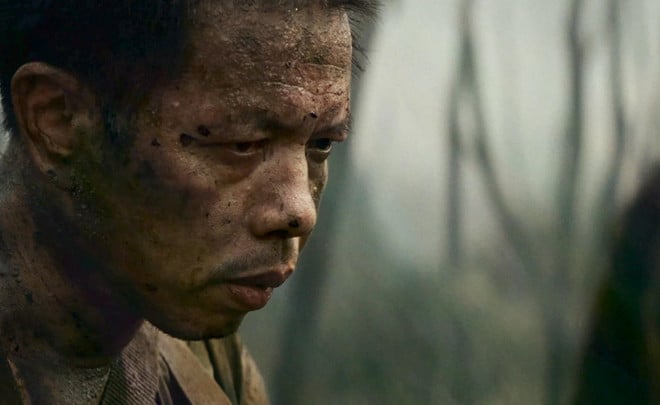
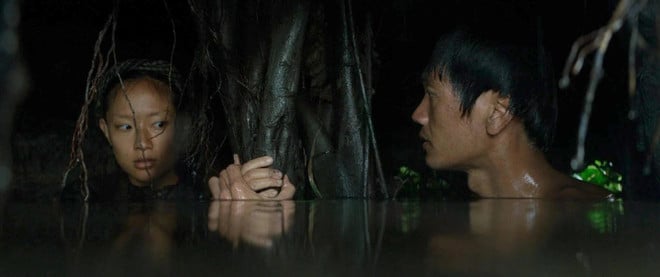
![[Photo] General Secretary To Lam meets and expresses gratitude to Vietnam's Belarusian friends](https://vphoto.vietnam.vn/thumb/1200x675/vietnam/resource/IMAGE/2025/5/11/c515ee2054c54a87aa8a7cb520f2fa6e)



![[Photo] General Secretary To Lam concludes visit to Russia, departs for Belarus](https://vphoto.vietnam.vn/thumb/1200x675/vietnam/resource/IMAGE/2025/5/11/0acf1081a95e4b1d9886c67fdafd95ed)
![[Photo] General Secretary To Lam arrives in Minsk, begins state visit to Belarus](https://vphoto.vietnam.vn/thumb/1200x675/vietnam/resource/IMAGE/2025/5/11/76602f587468437f8b5b7104495f444d)



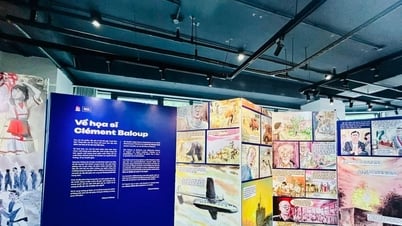
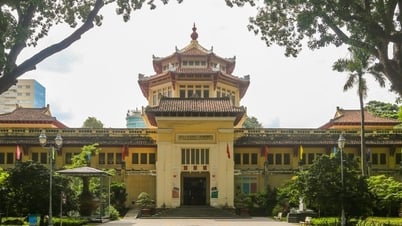





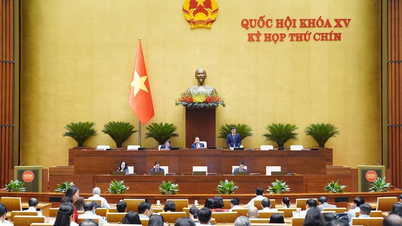

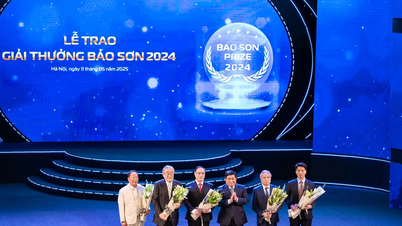


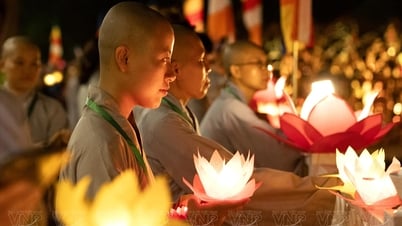

![[Photo] National Assembly Chairman Tran Thanh Man attends the Party Congress of the Committee for Culture and Social Affairs](https://vphoto.vietnam.vn/thumb/1200x675/vietnam/resource/IMAGE/2025/5/11/f5ed02beb9404bca998a08b34ef255a6)



























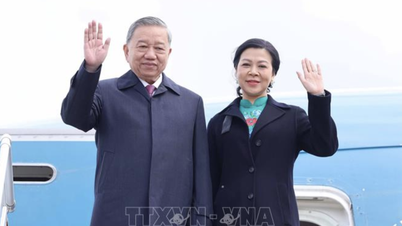





















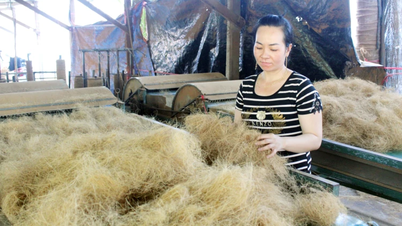
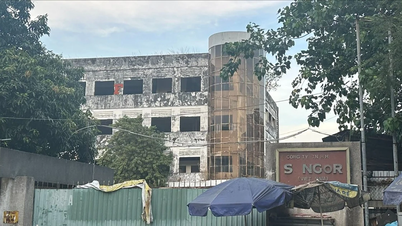










Comment (0)